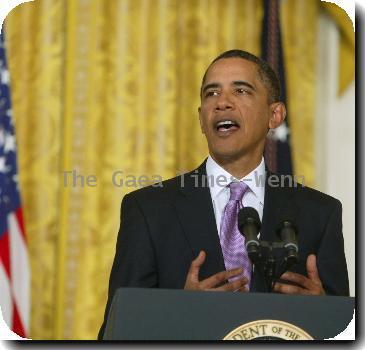As it slouched toward Gainesville, world saw its instant crises come faster than ever
By Charles J. Hanley, APThursday, September 9, 2010
In a wired world, the crises come instantly
NEW YORK — “Advocate tolerance, and disregard the ignorant,” one book counsels. Advises the other, “Be gentle towards all, … forbearing.”
If only the writers of the Quran and the Bible had logged on to Twitter accounts.
The world has always had its cranks and crackpots, its intolerance and religious bigots. But only in this wired generation has word of outrages against others’ beliefs flashed around the globe in an instant, to create instant crises.
With his threat to burn Qurans on the anniversary of the 9/11 terrorist attacks — a plan suddenly canceled Thursday — Florida’s most famous obscure preacher managed to draw imams and the pope, televangelists and presidents, U.S. governors and U.S. generals, even Angelina Jolie into an electronic storm of denunciation, appeal and warning.
The Vatican had condemned the “outrageous and grave gesture.” Barack Obama called it “a recruitment bonanza for al-Qaida.” Interpol cautioned governments to guard against terror attacks. Britain’s foreign secretary deemed it “provocative in the extreme.”
The most worrying reaction came in the Islamic world.
Hundreds of angry protesters marched in Afghanistan and Pakistan against the planned attack on the book Muslims embrace as the word of God. Muslim governments appealed to Washington to prevent the act. Then there were the Iranian commentators who blamed Israel for the whole thing.
The furor over the Rev. Terry Jones’ plan was merely the latest skirmish in the Internet age’s “clash of civilizations,” reaching back to the death-sentence “fatwa” Iran issued against Salman Rushdie in 1989, and forward to today’s Western outrage over Iran’s sentencing of a convicted adulteress to death by stoning.
The most explosive occurred in 2006, after a Danish cartoonist depicted the Prophet Muhammad wearing a bomb-shaped turban. This “drawing seen ’round the world” sent protesters in Islamic countries into the streets to attack Danish embassies.
The increasingly globalized news media, coupled with the unfettered world of blogs, tweets, e-mails, Flickr’d photos and YouTube videos, rife with misinformation, ignorance and invective, feed the fury that now can arise overnight across oceans and time zones.
Some try not to supply kindling for the bonfires of bigots.
In its print edition Thursday, The New York Times barely mentioned the planned Quran burning in Gainesville. The Associated Press also reported little on Jones’ threat until Gen. David Petraeus warned Tuesday that such a provocative act could endanger U.S. troops in Afghanistan and Iraq.
But the Times, the AP and other established news organizations no longer define the news agenda in the way they did in pre-Internet days. The passions were stoked instead by a “Burn a Koran Day” Facebook page, for example, which caught the faithful’s attention in Egypt in mid-July, and by e-mails sent globally by outraged American Muslims.
By Aug. 12, the Supreme Council of Cairo’s al-Azhar University, a global center of Islamic learning, issued a statement accusing Jones’ Dove World Outreach Center of “stirring up hate and discrimination.” By this week it was warning of “dangerous consequences.”
And by Thursday, the story had gone beyond viral: Googling “Gainesville” and “Quran” or “Koran” found more than 1 million Web hits, 43,000 Internet images and more than 500 video clips.
The controversy demonstrated, too, that simpler is better. The dispute over a planned Islamic center near New York’s 9/11 ground zero — an argument with many nuances and conflicted feelings — barely attracted attention in the Middle East. Meanwhile, the act of burning another’s holy book is easily understood by all.
It also suggested the millisecond pace of crisis in our wired world may be moving toward the nanosecond.
A century ago, Mark Twain was said to have observed that a lie can travel halfway around the world before the truth even gets its boots on. He spoke figuratively, of course. Today, in a world of religious tensions, terrorism, nuclear bombs and instant crisis, it’s a fact.
Tags: Angelina jolie, Barack Obama, Facebook, Florida, Gainesville, Middle East, New York, North America, Quran-burning, Terrorism, United States, Youtube

